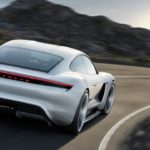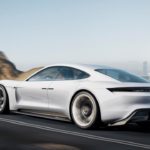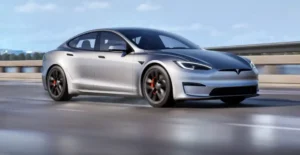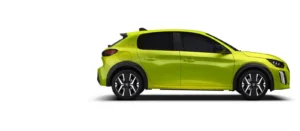Earlier this month Porsche announced that the Concept E all electric car will enter production in 2020 after the supervisory board had given the green light for production of the car at its main assembly plant in Zuffenhausen, Germany.
Porsche will invest around one billion euros while creating more than 1,000 new jobs as their Mission E project officially gets under way.
Roughly 700 million euros will go to its Stuttgart-Zuffenhausen site alone, while a new paint shop and a new assembly plant will be built over the next couple of years.
The current engine factory will also be expanded in order for Porsche to produce the electric motors, which will coincide with the enlargement of the body shop.
According to Dr. Oliver Blume, Chairman of the Executive Board at Porsche, his company is “beginning a new chapter in the history of the sports car.” A chapter well on its way to being “published”, as the production-ready car could be launched at the end of the decade.
The Mission E concept first showed up at the Frankfurt Motor Show back in September, where both visitors and media alike were impressed by its total system power output of over 600 HP (440 kW), 3.5 second 0-100 km/h sprint time and its 500+ km (over 310 miles) range.
It’s the latest of several recent electric-car announcements from Volkswagen Group, others projects include production of the Audi e-tron quattro battery-electric crossover utility vehicle, likely in 2018 or so.
Then came an all-electric Volkswagen Phaeton luxury sedan that is to follow, probably using the same underpinnings and electric drivetrain.
The Mission E stands out both for its focus on pure performance and its launch by the famed sports-car marque that likely produces the highest profits per car of any maker in the sprawling VW Group.
Blume added that Porsche is looking to offer customers “the sportiest and technologically most sophisticated model in this market segment”, which might just be the case unless someone else comes out with a similar car before the year 2019.
In terms of practicality, the Mission E concept was promoting a lithium-ion integrated battery. It was charged to 80 percent of its capacity in an impressive 15 minutes via an 800-volt unit, while there is also an option of wireless charging through a coil in the garage floor.
“This heralds the dawn of a new age in Zuffenhausen and Weissach”, said Uwe Huck, Deputy Chairman of the Porsche AG Supervisory Board. “Digitization will be growing up with us. And Factory 4.0 will be a major challenge for the workforce, trade union and employer. We will be taking new approaches but not giving up on the social aspects. With today’s decision, Porsche is driving flat out with no speed restrictions into the automotive and industrial future.”
This has been called a Tesla killer by many members of the press. This os course is total junk. Tesla has already produced about 100,000 model S cars. The quickest model S the +95D has some super impressive performance with 0-60 in around 3 seconds. Porsche is just starting with electric cars, yes they have some experience with the Hybrid Panamera and Cayenne but there is still a great deal to engineer. Then there is the selling price, Porsche is firmly affixed to the higher end of the market. A Hybrid Porsche Panamera will set you back more than a top of the line Model S from Tesla. Then there is the unknowns – for example the charging system. An 800 volt charger sound impressive. Is Porsche going to build these thought Germany, like Tesla has done? By the time the Concept E hits the market Tesla will have the Model S, Model X and Model 3 in production and plan to have ramped production to 500,000 units per year. The concept E looks great but it is far from a Tesla killer. In fact it does the opposite, it confirms that high performance cars can and should be powered by electric motors.
See Porsche News room for more details.





